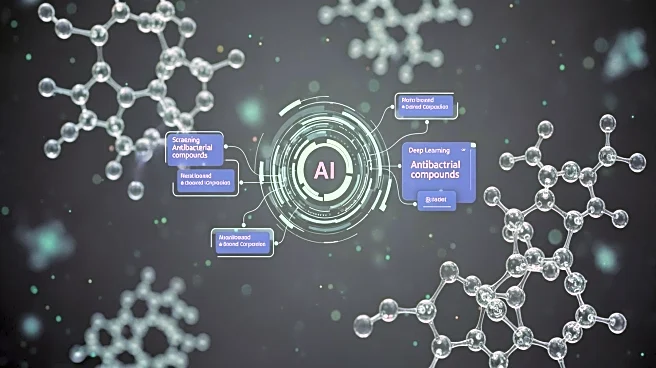What's Happening?
Recent advancements in deep learning have significantly improved the virtual screening process for antibacterial compounds. Researchers have developed models that can efficiently identify potential antibacterial agents by analyzing vast chemical libraries.
This approach leverages machine learning algorithms to predict the efficacy of compounds against bacterial pathogens, streamlining the drug discovery process. The integration of artificial intelligence in this field aims to address the growing challenge of antibiotic resistance by accelerating the identification of novel antibacterial drugs.
Why It's Important?
The use of deep learning in drug discovery is crucial in the fight against antibiotic-resistant bacteria, a major public health concern. By enhancing the speed and accuracy of virtual screenings, this technology can reduce the time and cost associated with developing new antibiotics. This is particularly important as traditional methods of drug discovery are often slow and expensive. The ability to quickly identify promising compounds could lead to the development of new treatments, potentially saving lives and reducing the burden on healthcare systems.
What's Next?
As deep learning models continue to evolve, they may be applied to other areas of drug discovery, including the development of treatments for viral infections and cancer. Collaboration between tech companies, pharmaceutical firms, and academic institutions will be key to advancing these technologies. Regulatory bodies may also need to adapt to ensure that AI-driven drug discovery processes meet safety and efficacy standards.
Beyond the Headlines
The integration of AI in drug discovery raises questions about data privacy and the ethical use of machine learning in healthcare. Ensuring that AI models are transparent and unbiased will be essential to gaining public trust. Additionally, the potential for AI to democratize drug discovery by making it more accessible to smaller research institutions could lead to a more diverse range of therapeutic innovations.
















